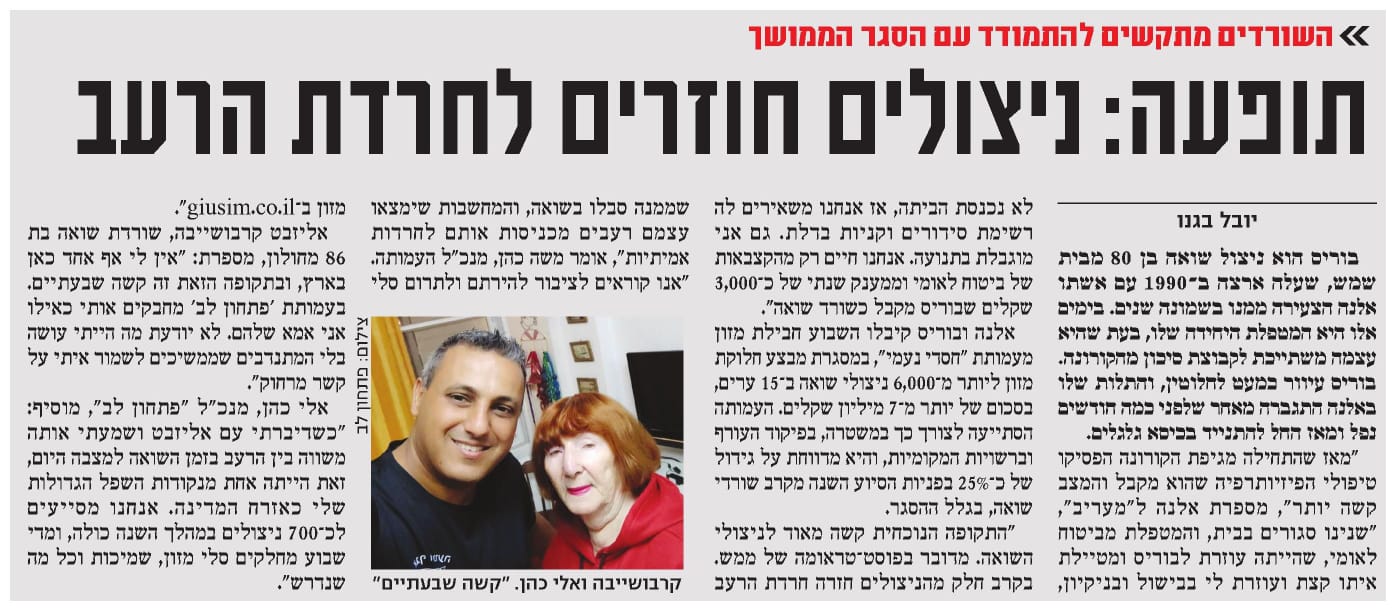Maariv
Survivors are finding it difficult to deal with the ongoing shutdown
Holocaust survivors are experiencing a return of a fear of hunger
Yuval Bagno
Boris is an 80 year-old Holocaust survivor from Beit Shemesh who made aliya in 1990 with his wife Elena, who is 8 years younger than him. These days she is his sole caregiver, since she herself is in the corona virus risk group. Boris is almost completely blind, and his dependency on Elena increased since he fell a few months ago and has been confined to a wheelchair.
“Since the corona epidemic began his physical therapy treatments have stopped and the situation is more difficult,” says Elena to Maariv. We are both stuck at home, and the National Insurance caregiver who would help Boris and walk with him a little and help me with cooking and cleaning, isn’t coming into our home. We’re leaving her a list of errands and shopping at the door. I’m also mobility impaired. We live solely from National Insurance allowances and an annual grant of NIS 3000 that Boris receives as a Holocaust survivor.”
This week Elena and Boris received a food package from the Chasdei Naomi association, as part of their food distribution campaign to more than 6,000 Holocaust survivors in 15 cities, totaling more than NIS 7 million. For the campaign the association relied on the Police, Home Front and local authorities, and reports a 25% increase this year in the number of requests for assistance among Holocaust survivors because of the sheltering at home restrictions.
“This period of time is very difficult for Holocaust survivors. We’re talking about real post-trauma. For some of them, the fear of starvation that they experienced during the Holocaust has returned, and the idea that they will find themselves hungry is extremely traumatizing,” says Moshe Cohen, the director of Chasdei Naomi. “We are calling on the public to donate food baskets at giusim.co.il.”
Elizabeth Kravoshayva, an 86 year-old survivor from Holon, relates: “I don’t have anyone here in Israel, and during this period it’s twice as hard. At the “Pitchon Lev” association they embrace me as if I’m their mother. I don’t know what I’d do without the volunteers who continue to stay in touch with me from afar.”
Eli Cohen, the director of Pitchon Lev, adds: “When I spoke with Elizabeth and I heard her compare the hunger she experienced during the Holocaust and her situation today, for me that was one of my lowest points as an Israeli citizen. We are helping about 700 survivors during the entire year, and every week we distribute food baskets, blankets and whatever else is needed.”
the campaign page link:

